They were brought into the BC SPCA’s care with serious health issues. When they arrived, they were barely recognizable – helpless, covered in fleas crawling into their mouths and eyes, their fur was patchy and falling out. Then came the positive ringworm diagnosis. Ringworm is a highly contagious infection affecting the skin, hair and nails that threatened both them and the people trying to help them.
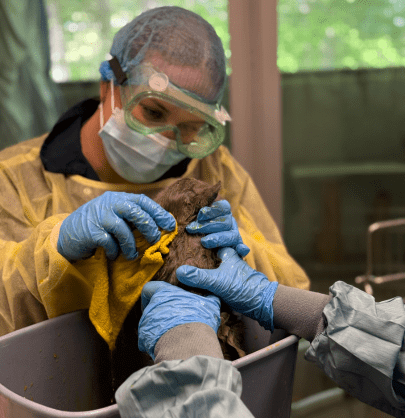
“These ragdoll cats and kittens were in such rough shape when they arrived,” says Bonnie Pequin, manager of the BC SPCA’s Nanaimo animal center. “It was obvious they had not seen a veterinarian for their ailments, and they were struggling – not just physically but emotionally.”
The cats were under-socialized. “When the cats and kittens first came to us, it was clear they didn’t know the gentle touch or the warmth of human kindness. They shrank away from us, unsure and afraid,” Pequin recalls. “But they have transformed before our eyes. Now when we walk into the room they race to us purring with joy, especially when we bring them toys!”
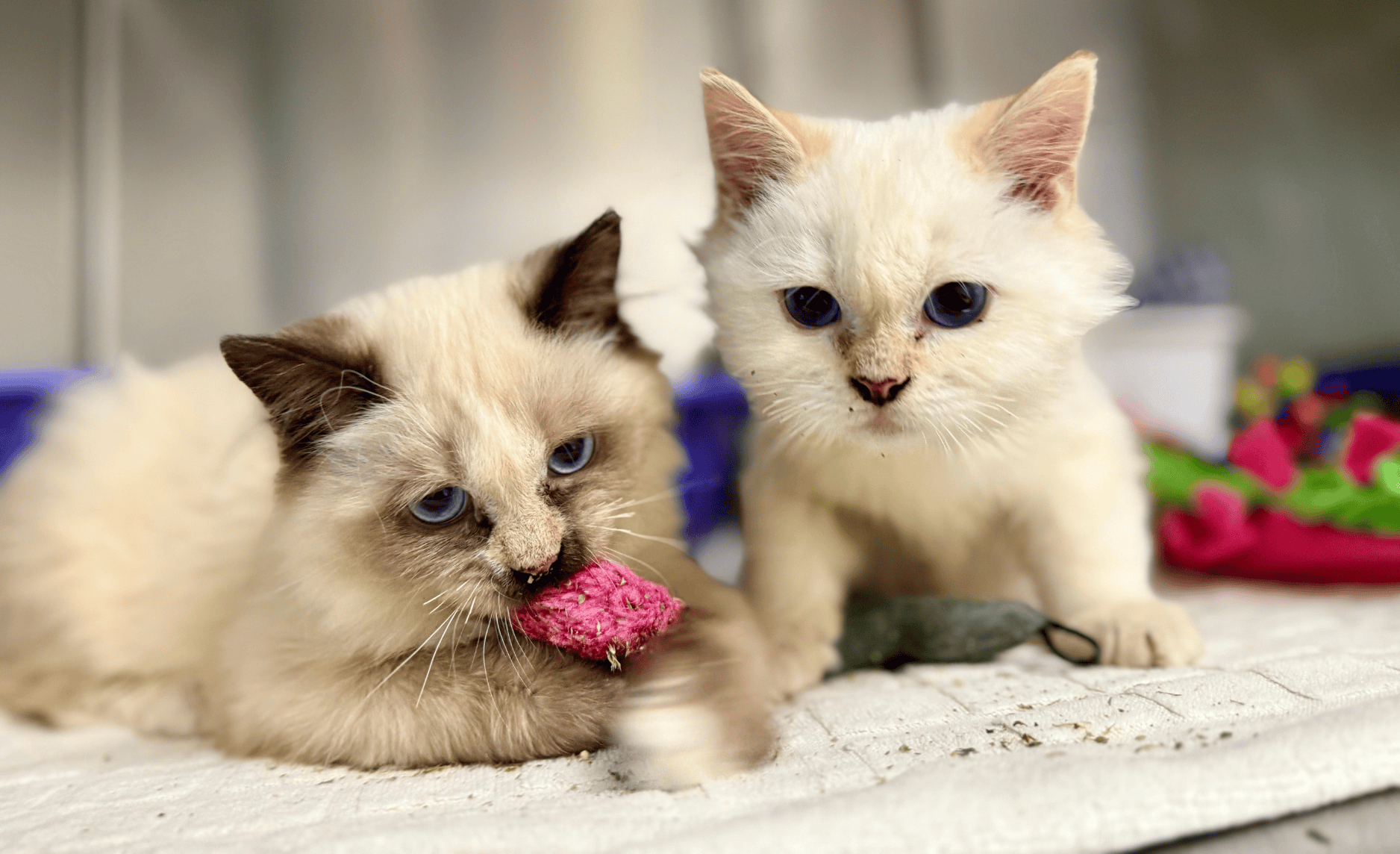
The recovery from ringworm requires an incredible amount of time and effort from the staff at the centre. The cats must remain in quarantine for as long as their infection is present. Pequin explains, “The eight cats and kittens have to be immersed in a sulphur lime dip twice a week,” she says. “The dip must saturate right through the fur and touch all of their skin, but at the same time we need to be very careful to avoid their eyes.” Pequin adds that the cats also require oral medication to treat the infection.
Despite the challenges, their transformation has been remarkable. “We have fallen in love with these cats and kittens,” says Pequin. “They are all looking and feeling so much better – and they are loving their cat nip toys.” She adds that one of the quarantine volunteers at the centre makes cardboard castles for them to play in on dip days.
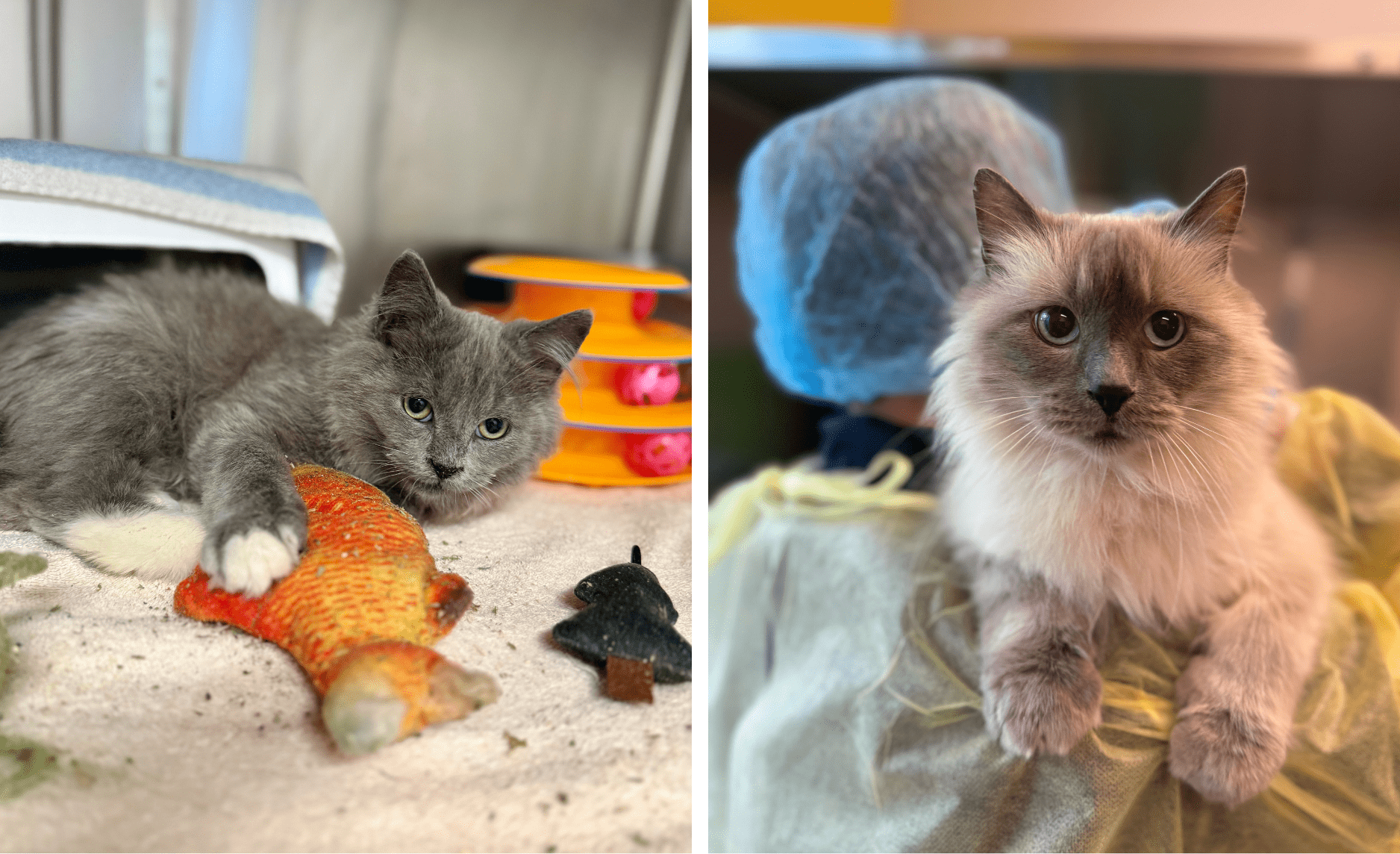
Unfortunately, the wait to find forever homes for these cats has been extended as the kittens are still testing positive for ringworm and their quarantine period must continue.
“We need two consecutive tests showing zero fungal growth to clear them for adoption. Sadly, they will probably need another month of dips and medication before they’re ready,” explains Pequin. “We can hardly wait to help them find the homes they truly deserve.”
BC SPCA investigation results in an irresponsible breeder surrendering four Ragdoll kittens and four adult cats in shocking condition
Original story: April 23, 2025
The BC SPCA has taken custody of eight Ragdoll kittens and adult cats surrendered to an animal protection officer from a property in Nanaimo on April 10, 2025.
“This case of neglect was brought to our attention by an individual who purchased a kitten from a local breeder,” says Eileen Drever, the BC SPCA’s senior officer protection and stakeholder relations. “Not only did this breeder deny the buyer entry into their home to see the breeding area, but the kitten they brought out smelled strongly of urine and had fleas crawling into their mouth and eyes.”
Drever notes that when the buyer took the kitten to a veterinary clinic for a checkup, the veterinarian identified numerous health concerns. The kitten had a bloated abdomen, with live fleas and excessive flea dirt present, dark debris in the ears, dark discharge in one eye, hair loss around both eyes, and scabs on the tip of his ears, plus crusting on his tail.
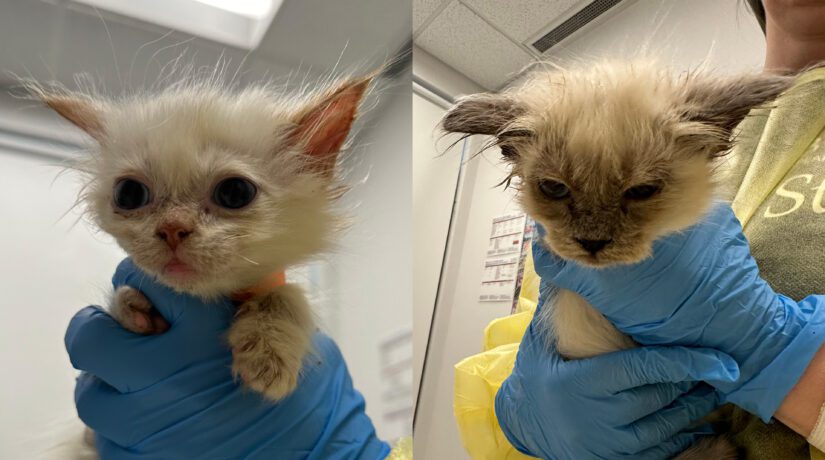
“The kitten was in such poor health that the veterinarian opted to delay vaccinations until the kitten recovered,” says Drever “The owner was sent home with four medications to treat the ailments,” says Drever.
The buyer reached out to the BC SPCA Animal Helpline and an investigation was initiated. When the animal protection officer visited the home they noticed a strong ammonia odour, full litter boxes and scattered cat feces on the floor. There was no visible kitten food for the remaining eight-week-old kittens. The owner surrendered the remaining cats to the officer.
Once in the BC SPCA’s care the cats were examined by a veterinarian. “All the kittens had similar issues to what was reported to the BC SPCA’s Animal Helpline. They were also hungry and malnourished,” says Drever. Not surprisingly, the four adult cats were also in bad shape. “They were covered in live fleas with severe flea allergy dermatitis and skin infections,” says Drever. “One of the adult females had two mammary cysts that will need to be removed when she is spayed.”
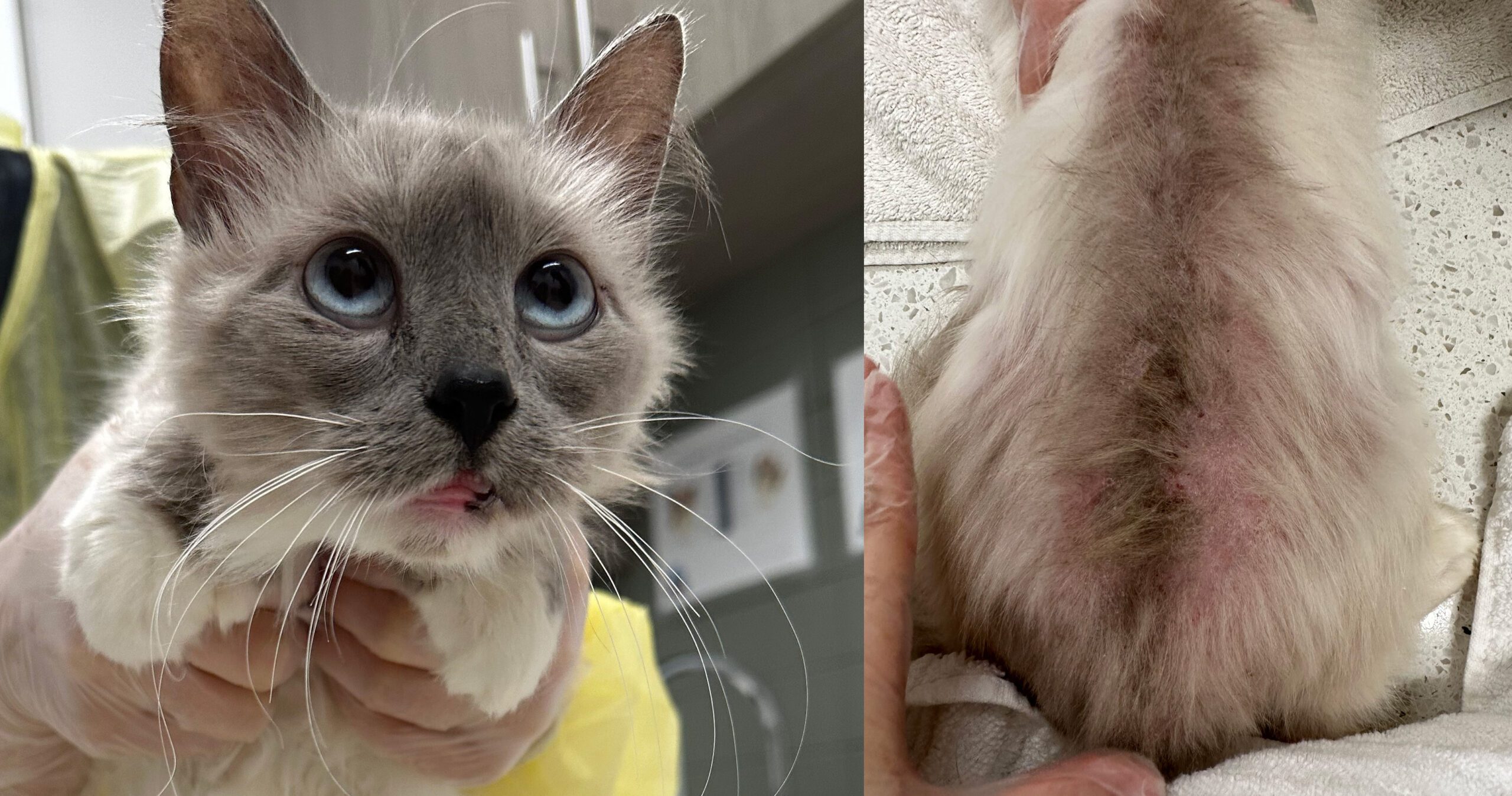
“This group of cats arrived at the animal centre scared and untrusting,” says Drever. She adds BC SPCA staff have been spending lots of time with the cats to help desensitize them and make them more comfortable. “Now three of the four kittens will let staff pet them and they are starting to purr,” says Drever. She adds that two of the four adults are also starting to come around thanks to the time staff are spending with them and cat treats.
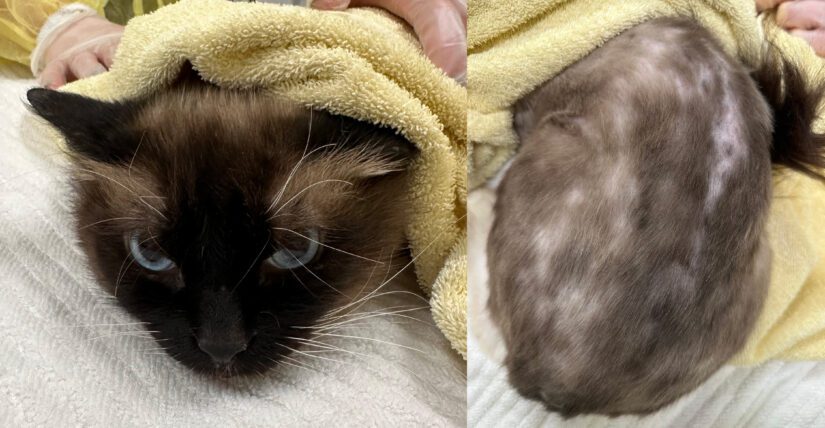
Drever reminds people that this case has all the hallmarks of an irresponsible breeder. “It is worth repeating, if a breeder will not let you into their home to see how the animals are living then you should not purchase an animal from them,” she says. “Based on the condition of the original kitten, it was clear that the animals in this home were not receiving the care they desperately needed.” Drever adds if you believe an animal is in distress to report it to the BC SPCA’s animal helpline 1-855-622-7722.
The cats and kittens have recently tested positive for ringworm and are currently in quarantine. Due to this diagnosis the cats will not be available for adoption for two months. Once they recover, they will be featured on our website adopt.spca.bc.ca.
